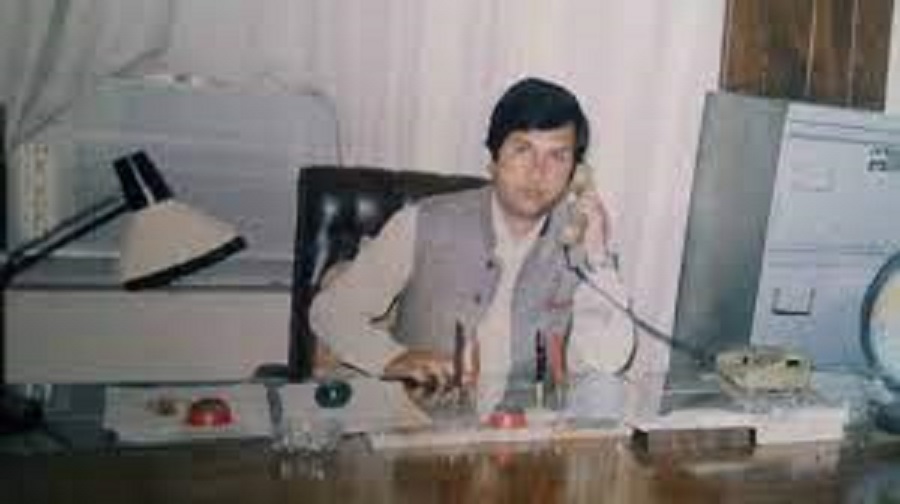Syed Sardar Badshah
This is a collection of articles archived for the excellence of their content. Readers will be able to edit existing articles and post new articles directly |
Syed Sardar Badshah
FAVOURITE ACTOR: Lala Sudhir
FAVOURITE ACTRESS: Uzma Gillani
FAVOURITE MOVIE: Mela
FAVOURITE BOOK: Mohammad Bin Qasim
FAVOURITE POETS: Khushhal Khan Khattak
FAVOURITE AUTHORS: Ibni Safi and Naseem Hijazi
Sher Alam Shinwari
Syed Sardar Badshah is one of those artistes whose creativity is apparent in all their ventures. Born in district Charsadda into a religiously scholastic family at the village of Dhaki, his acting debut was for Radio Pakistan Peshawar in 1968.
He has a Masters degree in Pashto literature from the University of Peshawar. He was given a lead role in his first Pashto radio play Koisuzdan (Engagement) for which he received a cheque of Rs10. Since then he became the most sought-after hero of Pashto plays. He has represented Pakistan in 23 countries by putting up different cultural shows, and in 11 of them his shows Sheralam Maamonai, Hujra and Da Wadah Shapah received the first prize.
He is the recipient of 200 awards including Tamgha-e-Imtiaz and Pride of Performance. He has been decorated with 60 gold medals by various literary, social and cultural organizations for his superb performances. In addition to his art activities, he is also the president of Pakistan Youth Organization (PYO), which works for the welfare of youth across the country, including FATA, and Azad Jammu and Kashmir.
He runs the Khyber Art Academy, which promotes performing arts in the Frontier. “Basically I belong to a religious family. My father was renowned Sufi scholar, he had advised me to utilize my potentialities for the service of humanity. I wanted to join the army but my mother opposed the idea so I joined the department of audit and accounts and retired from there in 2005. I have performed numerous roles but my strength has always been in playing a positive and constructive role in plays and so is the case in real life,” Badshah reveals.
He admits that there is a decline in the quality of TV and stage dramas due to the lack of professional zeal and commitment. “Team work is very much there but involvement, both mental and physical absorption in artistic expressions, is missing. I don’t think commercialism is robbing art of its originality. You need money if you promote art in the modern world,” he observes.
“Closing down Nishtar Hall was tantamount to killing performing arts. The MMA government should go for the root cause. The hall could be used for many constructive cultural activities as art has many different shapes and forms,” Shah, remarks.
He did try out his hand in Pashto movies but the bizarre and alien environment did not appeal to his sensitive mind. “I performed in Ukhkey Lamun and also signed 20 other Pashto films some 20 years ago, but soon I felt disgusting and a misfit there. Thus I cancelled all the contracts with producers who were bent upon maligning the Pashtun culture and social norms. I abandoned the idea once and for all,” he recalls.
He considers Lala Sudhir as a versatile actor while he also praises the performances of Asif Khan, Badar Munir, Mohammad Ali, Nargis, Sabiha Khanum, Yasmeen Khan, Madhubala, Nadeem and Dilip Kumar. Among the Pakistani movies that he has enjoyed, he recalls Baaghi, Akhri Nishaani, Tufaan, and Aishqe Laila while from Bollywood he mentions Andaaz. He also adds that that Dilip Kumar’s performance in Mela is unforgettable.
Badshah picks Shakeel Ahmed, Talat Hussain, Shafi Mohammad, Roohi Bano, Khalida Riasat and Uzma Gillani to be the most talented TV actors. When Dilip Kumar came to Peshawar during Zia’s era, he met Shah and appreciated his work.
“In fact, we can learn the spirit of true art from these legends who devoted a great part of their life to the perfection of their artistic vision,” Shah maintains.
“Our youth is physically, mentally and morally very sound, they just need a right direction. My art academy is open for young people if somebody has a penchant for visual or performing art,” he offers.
Badshah confesses that these days he doesn’t get much leisure time to listen to music and when he does, he listens to classical, semi and light ghazal, depending on mood and time.
“Lataji, Madam Noor Jehan, Mohammad Rafi and Mehdi Hassan have marvelous voices,” he discloses. “Pop music to me is meaningless. It involves no effort or creative thought. I am a staunch fan of Mehdi Hassan and he is my all time favourite,” Shah says.
Commenting on the reading habit, Syed Sardar Badshah says, “Ibni Safi and Naseem Hijazi’s writings have always inspired me due to their enchanting and captivating style. I enjoy religious books, especially Sufi texts. I also crave for purpose-driven and good poetry, whether it is in Urdu, English or Pashto. I strongly believe that a firm vision is attained only after browsing lots of bookshelves and personal observations. This brings originality and give a spur to one’s inborn talent,” adds Shah.
When small he was an ardent reader of fiction but his religious bent of mind led him towards picking up more serious books having a moral and social impact for making better human beings.
“Any book or form of art with no clear purpose ranks below the standards of acceptance. In this regard, Sufi saints and their writings reign supreme despite elapse of centuries. People read them anew every now and then for extricating lessons from their sublime vision to seek guidance. Book reading is not just pleasure. It would be a selfish idea, it is to discover the spiritual being that everybody possesses without sensing its existence and its implications,” Shah opines.
About his favourite poets, he regards Khushhal Khan Khattak, Hamza Baba as masters for their tremendous contributions to Pashto literature and Pashtuns at large. He fondly names Naseem’ Hijazi’s novel Mohammad Bin Qasim as one of his favourites.
